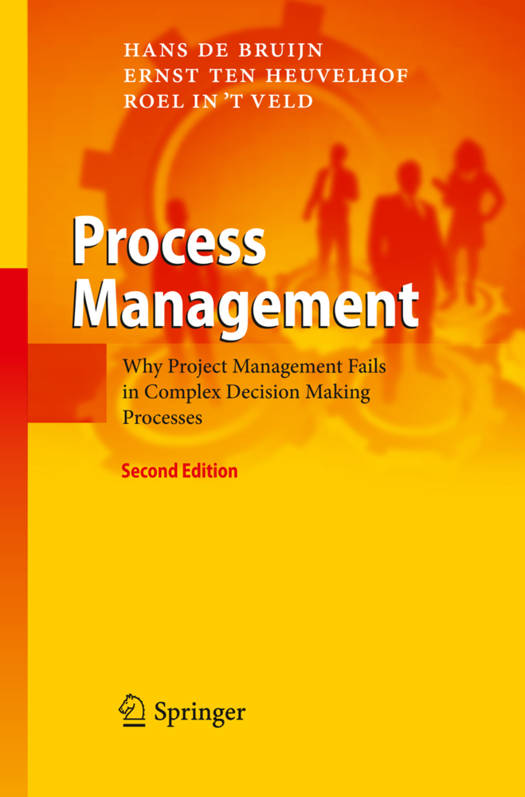
Bedankt voor het vertrouwen het afgelopen jaar! Om jou te bedanken bieden we GRATIS verzending (in België) aan op alles gedurende de hele maand januari.
- Afhalen na 1 uur in een winkel met voorraad
- In januari gratis thuislevering in België
- Ruim aanbod met 7 miljoen producten
Bedankt voor het vertrouwen het afgelopen jaar! Om jou te bedanken bieden we GRATIS verzending (in België) aan op alles gedurende de hele maand januari.
- Afhalen na 1 uur in een winkel met voorraad
- In januari gratis thuislevering in België
- Ruim aanbod met 7 miljoen producten
Zoeken
Process Management
Why Project Management Fails in Complex Decision Making Processes
Hans de Bruijn, Ernst Ten Heuvelhof, Roel In 't Veld
Hardcover | Engels
€ 99,45
+ 198 punten
Uitvoering
Omschrijving
- End: pro't and loss account. As a result, there will be a stage at which the parties have developed relations and prospects of gain, while there are still a number of problems that are dif?cult to solve and that fail to evoke consensus. Each party will then draw up a pro't and loss account. On the positive side of the balance are the relations developed and the gains collected, on the negative side there are the losses and the unsolved problems. For particular parties, who have no interest in the problem, the latter side is uninteresting; for others, who have an interest in a particular solution of this problem, it represents a form of loss. - Pro't and loss balance positive for a critical mass: speed. The speed of the process will increase if the pro't and loss account shows a positive balance for a critical mass of parties. They wish to collect their gains and therefore to make ?nal decisions. At this point there will be an important psychological mec- nism: parties tend to anticipate on collecting their gains, which increases their urge to speed up the process. It is clear from the above, however, that the end of a process is dif?cult to predict.
Specificaties
Betrokkenen
- Auteur(s):
- Uitgeverij:
Inhoud
- Aantal bladzijden:
- 171
- Taal:
- Engels
Eigenschappen
- Productcode (EAN):
- 9783642139406
- Verschijningsdatum:
- 9/09/2010
- Uitvoering:
- Hardcover
- Formaat:
- Genaaid
- Afmetingen:
- 156 mm x 234 mm
- Gewicht:
- 435 g

Alleen bij Standaard Boekhandel
+ 198 punten op je klantenkaart van Standaard Boekhandel
Beoordelingen
We publiceren alleen reviews die voldoen aan de voorwaarden voor reviews. Bekijk onze voorwaarden voor reviews.









